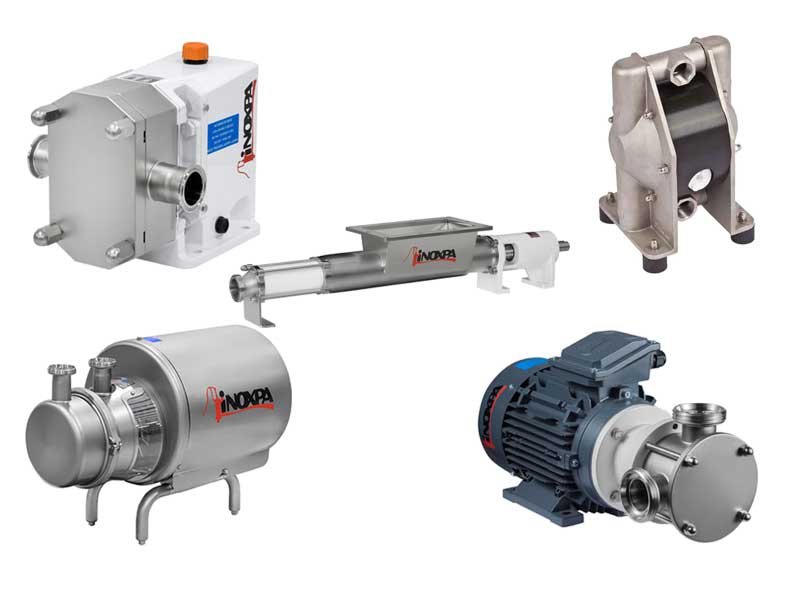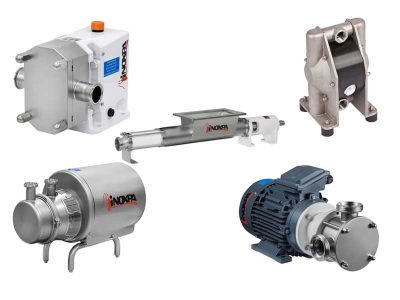
Industrial Pumps: Definition, Working Principles and Areas of Use
Industrial pumps are mechanical devices used to move, transfer or pressurize fluids in industrial processes. These pumps play a vital role in many industries, including chemical, petroleum, food, pharmaceutical and water treatment. In this article, we will take a detailed look at what industrial pumps are, how they work and in which areas they are used.
What are Industrial Pumps?
Industrial pumps are mechanical devices designed to move fluids from one point to another. These pumps create a pressure difference to move fluids and create flow. Industrial pumps are manufactured for heavy-duty applications that require durability, efficiency, and longevity. These devices are available in a wide range of types and sizes and can be customized to specific industrial needs.
Working Principles of Industrial Pumps
The working principles of industrial pumps are generally based on the principle of moving liquids using mechanical energy. According to their working principles, industrial pumps are divided into two main categories: Dynamic pumps and positive displacement pumps.
Dynamic Pumps
Dynamic pumps use speed and kinetic energy to move fluids. These types of pumps are typically used in applications that require continuous, high-flow fluid flow. Dynamic pumps fall into two main subcategories:
- Centrifugal Pumps: Centrifugal pumps are the most commonly used type of dynamic pump. A rotating component called an impeller accelerates the liquid and uses centrifugal force to push it outward. In this process, liquid is sucked in through the pump inlet and expelled through the outlet at high speed. Centrifugal pumps are ideal for water, chemical solutions, and other low-viscosity liquids.
- Axial-Flow Pumps: Axial-flow pumps move liquid in an axial direction (along the axis of the pump). These pumps are used in applications requiring low pressure and high-flow liquid flow. They are generally preferred in water treatment plants and the marine sector.
Positive Displacement Pumps
Positive displacement pumps move a liquid by compressing or pushing it through a specific volume. These types of pumps are used in applications that require high-viscosity liquids and precise flow control. Positive displacement pumps fall into two main subcategories:
- Gear Pumps: Gear pumps use meshing gears to move fluid. As the gears rotate, they force fluid through the gaps between the gears, creating a pressure difference that moves the fluid. These pumps are suitable for high-viscosity fluids and applications that require precise flow.
- Piston Pumps: Piston pumps move fluid by compressing or pushing it with the reciprocating motion of a piston. These pumps are used in applications that require high-pressure fluid flow and are generally preferred in hydraulic systems.
Usage Areas of Industrial Pumps
Industrial pumps are used for different applications in various industries. Here are some common uses of industrial pumps:
 Chemical Industry: In the chemical industry, industrial pumps are used to transport and process chemicals. These pumps safely transport acids, bases, solutions and other chemicals. Since chemical processes require precision, it is important for pumps to be made of chemically resistant materials.
Chemical Industry: In the chemical industry, industrial pumps are used to transport and process chemicals. These pumps safely transport acids, bases, solutions and other chemicals. Since chemical processes require precision, it is important for pumps to be made of chemically resistant materials.- Oil and Gas Industry: In the oil and gas industry, industrial pumps are used to extract, transport and process crude oil and natural gas. The pumps used in this sector must be resistant to high pressure and high temperature conditions. In addition, these pumps are widely used in underwater oil platforms and refineries.
- Food and Beverage Industry: Since hygiene and cleanliness standards are high in the food and beverage industry, industrial pumps are also designed to meet these requirements. They are used to transport and process milk, fruit juice, wine, beer and other liquid foods. Pumps made of hygienic materials such as stainless steel are preferred.
- Water and Wastewater Management: In water and wastewater management, industrial pumps are used to purify, transport and distribute water. These pumps play a critical role in drinking water supply, sewage systems and water treatment plants. Water pumps are generally devices that require high flow rates and long life.
- Pharmaceutical Industry: In the pharmaceutical industry, industrial pumps are used to transport and process liquids used in pharmaceutical manufacturing processes. Hygiene and cleanliness standards are very important in this sector. For this reason, pharmaceutical pumps are made of sterile and hygienic materials and are designed to provide precise flow control.
- Paper and Pulp Industry: In the paper and pulp industry, industrial pumps are used to transport raw materials and water, prepare and process pulp. These pumps must be durable enough to handle high viscosity and abrasive liquids.
- Mining Industry: In the mining industry, industrial pumps are used to transport water, chemical solutions and ore. Pumps used in mining must be resistant to abrasive substances and suitable for harsh operating conditions. They must provide reliable performance in mineral extraction and processing processes.
Selection of Industrial Pumps
Selection of industrial pumps should be made carefully according to the area of use and requirements. Factors affecting the performance of pumps include liquid viscosity, flow rate, pressure, temperature and chemical compatibility. The correct selection of pumps is of great importance for efficient operation and long life. In addition, the ease of maintenance and repair of pumps should be taken into consideration.
Conclusion
Industrial pumps are indispensable mechanical devices for the transportation and processing of liquids. Playing a critical role in many industries such as chemical, petroleum, food, water treatment and mining, these pumps come in a variety of types and sizes to suit different needs. The correct selection and maintenance of industrial pumps is of great importance for the efficient and uninterrupted operation of industrial processes. Industrial pumps continue to become more innovative and efficient with the development of technology. In this article, we have discussed in detail what industrial pumps are, how they work and in which areas they are used.




